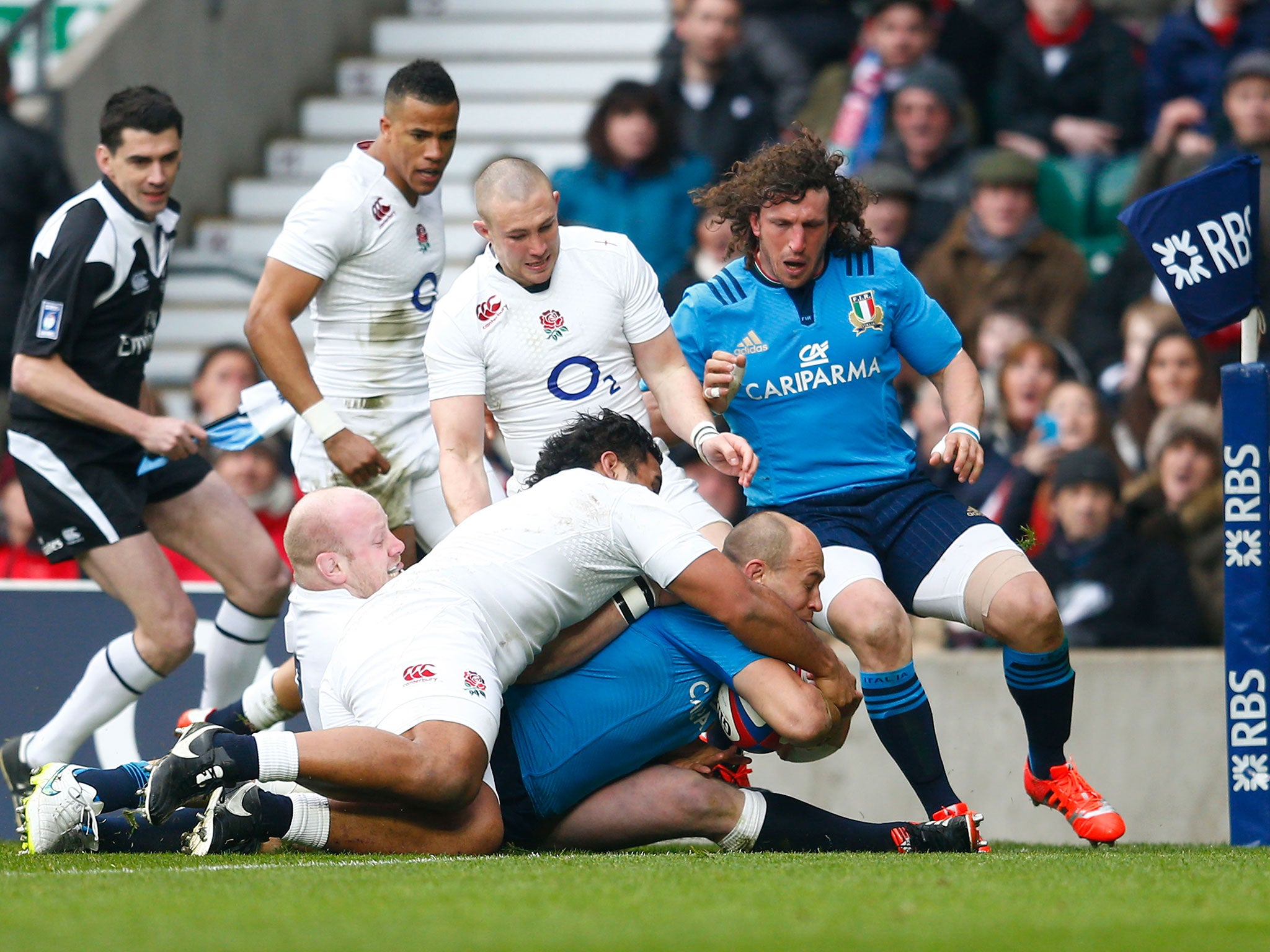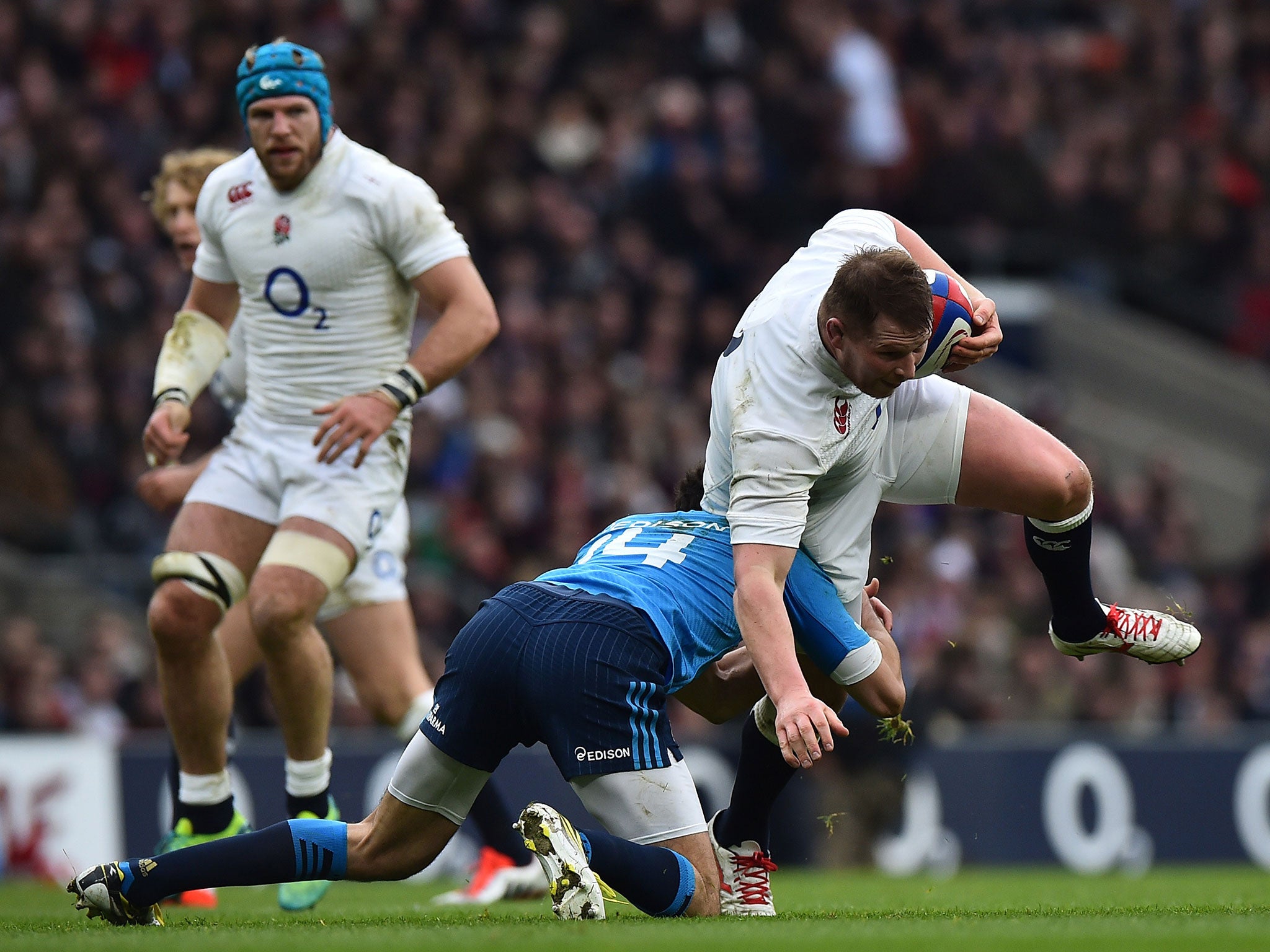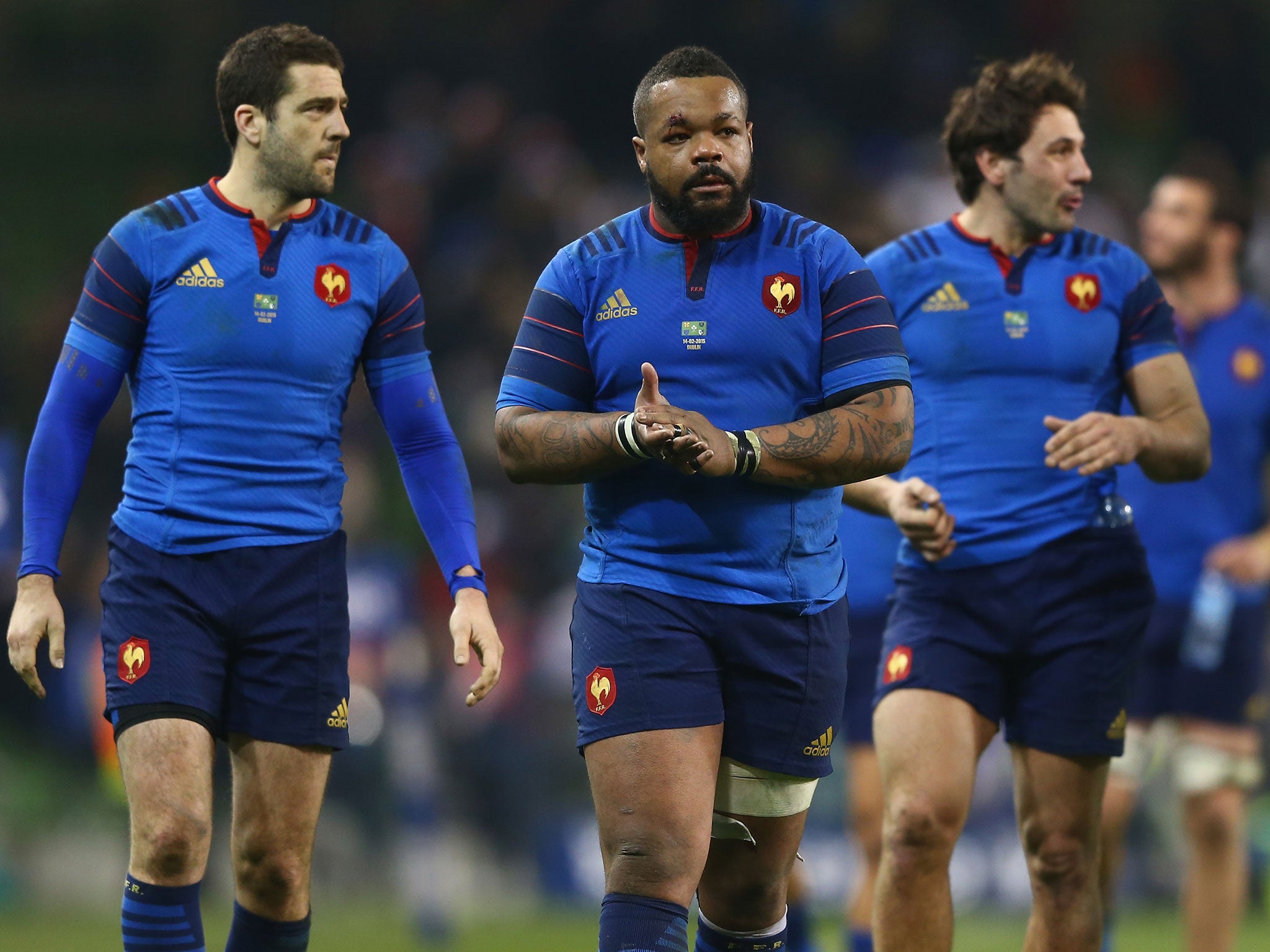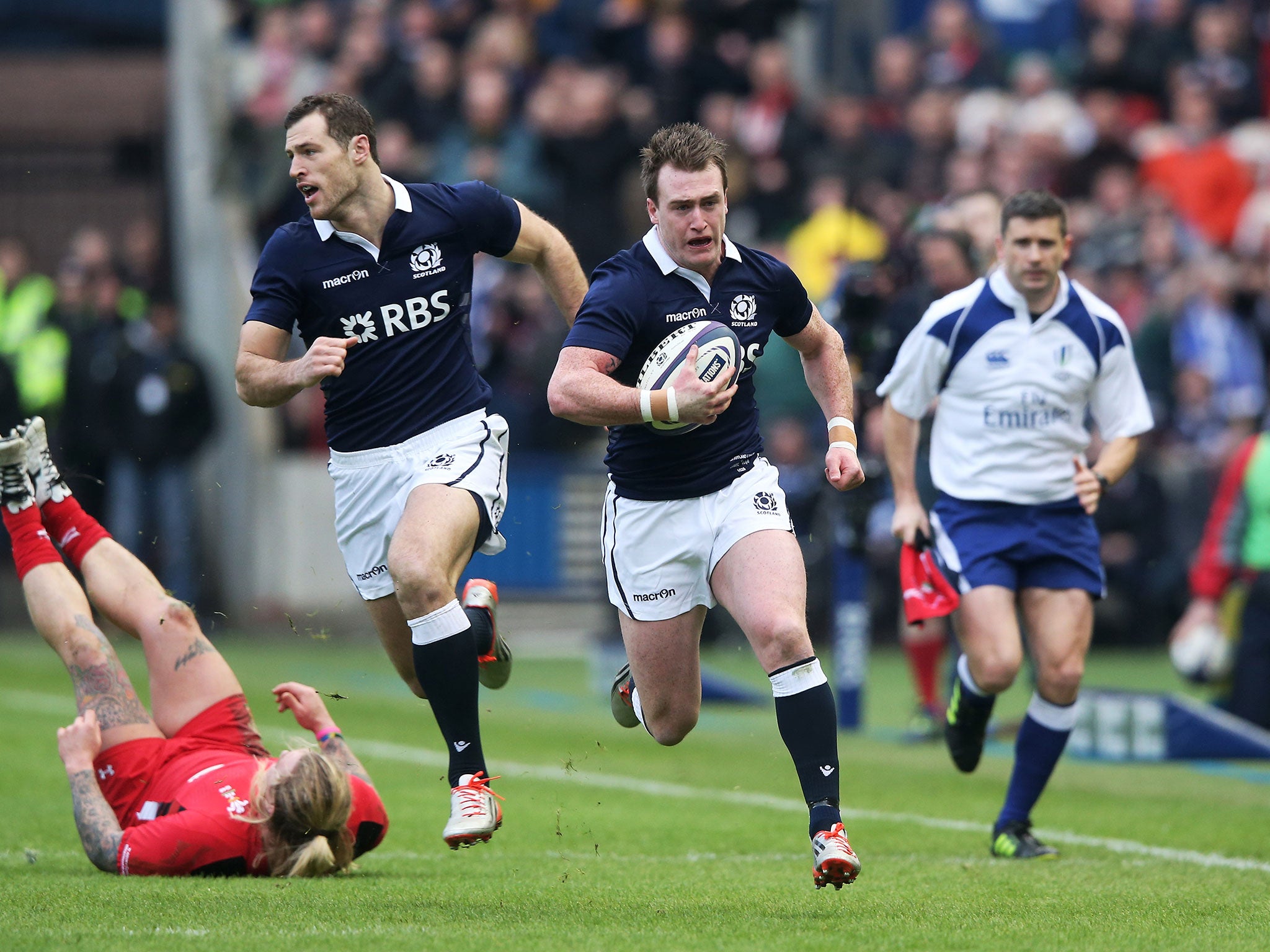Six Nations 2015: Five things we learnt this weekend, including England's slow start, Scotland lack cutting edge and France need pace
The return to form of Jonathan Sexton and England's tight-five dominance were key talking points in the second round of Six Nations action

Your support helps us to tell the story
From reproductive rights to climate change to Big Tech, The Independent is on the ground when the story is developing. Whether it's investigating the financials of Elon Musk's pro-Trump PAC or producing our latest documentary, 'The A Word', which shines a light on the American women fighting for reproductive rights, we know how important it is to parse out the facts from the messaging.
At such a critical moment in US history, we need reporters on the ground. Your donation allows us to keep sending journalists to speak to both sides of the story.
The Independent is trusted by Americans across the entire political spectrum. And unlike many other quality news outlets, we choose not to lock Americans out of our reporting and analysis with paywalls. We believe quality journalism should be available to everyone, paid for by those who can afford it.
Your support makes all the difference.Jonathan Sexton is back
The only people who truly believed that Jonathan Sexton would struggle to rediscover his infallible autumn form after three months out, are the same sorry souls who think that pigs will one day take to the skies.
After a 12-week concussion stand down period, pre-match controversy surrounding his selection and an indirect threat from Bernard Le Roux, Sexton emerged from the tunnel at the Aviva Stadium steadfast and focused.
All eyes were fixed on the Racing Metro fly half and the French had even talked of targeting him, but when the frighteningly ferocious contest ensued, he remained poised, despite Mathieu Bastareaud's best efforts.
The man of the match orchestrated his back line with confidence and clarity and tormented the French back three with a collection of crafty cross-field kicks and delicate dinks over the top.
But most importantly, every time Ireland won a penalty within his range, he converted it.
With Ian Keatley at no.10, Ireland restricted themselves to a simple style of play, with Sexton at the helm, they looked adventurous and dangerous, even though France nullified their running game.

These are all ominous signs for England, as they will be well aware that Sexton will only improve as the tournament goes on.
England are slow starters
After two superior second-half showings, it is easy to forget that England have started their first two 2015 Six Nations matches sluggishly.
England concluded their victory over Wales in emphatic style and were expected to pick up where they left off in the opening exchanges at Twickenham.
But after Italy galvanized themselves with a characteristically compelling rendition of Canto degli Italiani, Kelly Haimona kicked off and the Azzurri exploded out of the blocks, throwing the ball around with more assurance than the Australian cricket team.
An under-strength Irish side kept Italy out for 80 minutes in Rome, but England were chasing shadows early on and were powerless to stop Sergio Parisse from bullying his way over after just three minutes.

If Haimona had brought his kicking boots and Castrogiovanni had not knocked on, just inches from the English line, the hosts would have been 14 points down before the 10-minute mark.
Of course England were more than capable of recovering from a 14-point deficit at home to Italy, and they showed real character to bounce back after going 10 points down so early on in Cardiff. But if they dare to start slowly in Dublin, Sexton will surely kick Ireland out of sight.
England's front five are a force to be feared
The Italian pack are renowned for their formidable scrummaging abilities. But those illustrious scrummagers received the same brutal treatment as every other forward who has dared to defy the awesome might of the English pack.
When the Azzurri forwards did confront England in the scrum, they were forced to follow in Wales and Australia's back peddling footsteps.

Under Graham Rowntree's leadership, England have established themselves as the best scrummaging side in the world and they enhanced their ever-growing reputation by decimating an experienced Italian pack.
Dave Attwood and George Kruis continue to thrive in the England engine room, Dan Cole has slotted seamlessly into the front row after returning from a neck injury and Dylan Hartley has kept his competitive edge as well as his cool. But the stand-out performer has undoubtedly been Joe Marler.
After making light work of Samson Lee in Cardiff, Marler turned his attention to an esteemed Test centurion.
When Martin Castrogiovanni made his debut for Italy back in 2002, Joe Marler was only 12 years old, but when the two met at Twickenham, Marler made the Italian legend's 109th cap one he would rather forget.

The Toulon prop was distorted by Marler's phenomenal power and he came under so much pressure in the scrum that he would have been relieved to see Ben Youngs sneak under the posts to score in the 55th minute. Because if his old Leicester teammate had not taken a quick tap after he collapsed the scrum, England would have ordered more resets and turned the screw until Castrogiovanni was sent to the sin bin and his side conceded a penalty try.
France need speed
Any lingering memories of elegant French running rugby have been trampled by the colossus collection of mutants that currently don the blue jersey.
Anyone who has played junior rugby will remember days when sides would give the ball to their biggest brute and watch as he battered his way through an entire team of tiny tacklers.
However, Philippe Saint Andre has not yet realised that this tactic is ineffective at elite level.

Most of Les Blue's monstrous men have the ability to get their side onto the front foot with some aggressive carries and deft offloads, but as a collective, France are struggling to make inroads into opposition territory because they are too focused on abrasion instead of evasion.
On Saturday, France seemed determined to keep it tight and smash through the green wall rather than calling on their talented back line to try to find a way round it, until Rory Best was sent to the sin bin in the 61st minute.
In the absence of the Irish hooker, 14-man France (Pascal Pape in the sin bin) abandoned their rigid game plan, adopted a more expansive approach and began to exploit the space, which caused Ireland to lose their defensive shape for the first time in the match.
Wales, Italy and England can all compete with the immense physicality of the French, but they will hope that Saint Andre's side do not decide to utilise the speed and skill that shredded the Irish defence, in the build up to Romain Taofifenua's second-half score.
The creative Scots lack a clinical edge
For the second week in a row, Scotland played with far more speed and ingenuity than their opposition but failed to capitalise on their pressure at key points in the match.
Stuart Hogg's opening score suggested that the hosts were in no mood to pass up on any opportunities. After just nine minutes, the full back raced over the whitewash to score off the first phase after Wales coughed the ball up in Scottish territory.

But a few minutes Finn Russell broke through the Welsh ranks and fed Alex Dunbar, but the center's pass eluded Mark Bennett and the chance went begging.
Russell was yellow carded and Wales built a six-point lead but after Glen Jackson sent Jonathan Davies to join him in the bin and Scotland came back strongly.
Vern Cotter's side laid siege to the Welsh line and surged forwarded but after 15 phases they were unable to force their way over. Jackson brought the half to an end and Scotland retreated to the dressing room knowing that they should be ahead.

When Wales had a one-man advantage, they scored and when Davies found the slightest weakness in the Scottish defence, he finished in ruthlessly.
For the majority of the second half, Scotland lacked composure in the final third and they could not fashion a way through the scrambling Welsh defence. But when John Welsh did cross over in the last play of the match, it was far too late.
Join our commenting forum
Join thought-provoking conversations, follow other Independent readers and see their replies
Comments